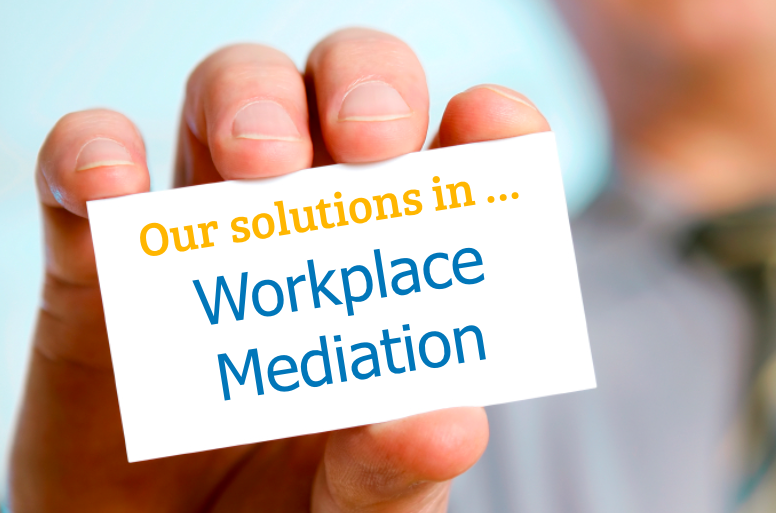Workplace Mediation
Workplace Mediation
 Disputes occur from time to time in every workplace. Disputes are costly, raising stress and ill-feeling. Disputes reduce employee commitment and engagement, not just in those directly affected. Workplace mediation is a method of resolving disputes.
Disputes occur from time to time in every workplace. Disputes are costly, raising stress and ill-feeling. Disputes reduce employee commitment and engagement, not just in those directly affected. Workplace mediation is a method of resolving disputes.
TimelessTime consultants have helped hundreds of managers resolve conflict in many varied workplaces.
We understand that so often it is structure that's at fault. Colleagues don't intend to ignore colleagues. It's just that in the structure, they have no need to consult. And it's so easy to jump to conclusions that it's about personalities. So often it's about misunderstandings. It's too easy to make assumptions.
Managing Disputes
Often managers can intervene to mediate in workplace disputes. But when disputes involve managers themselves, or somehow the parties are unhappy with managers getting involved, this becomes impossible. Mediation is an informal dispute resolution process that works in 80% of disputes.
Defining Mediation
TimelessTime consultants have trained to the highest levels and have many years experience in HR and people-management. There’s little in workplace disputes that they haven’t experienced.
Application of workplace mediation
- Workplace mediation is used to resolve conflict over working practices disagreement over scarce resources, behavioural issues, problems about performance and breakdown of interpersonal relationships.
- People in work find themselves in conflict at work because they perceive that their interests and concerns are incompatible with the interests and concerns of a colleague or colleagues.
- A mediator facilitating between people in work uses many skills: questioning, listening, summarising and reframing. Mediators need managerial experience and understanding coming from their training and experience of conflict.
- The choice of who to use as an external workplace mediator falls to the manager with the need to resolve the conflict. Choice depends on who the conflict is between: both parties should be able to respect the mediator for their competence and experience.
Where workplace mediation is inappropriate
- Workplace mediation should not be used to replace normal management.
- Management covers subordinate performance, grievances, disciplinaries, claims of bullying and harassment and disputes over employment contracts.
- Workplace mediation must not be confused with more formal methods of Alternative Disputes Resolution (ADR) using mediation, conciliation, adjudication and arbitration. ADR covers disputes over contracts – such as between companies and between employees and their firm.
Doing workplace mediation
- The parties in the dispute need to agree to the mediation. This is often done with a pre-mediation meeting with each person to seek his or her commitment.
- The end of the mediation is some form of agreement. When working with staff, it’s normally enough to frame a verbal agreement. The parties could shake hands and agree to go forward to make the necessary changes. But sometimes a verbal agreement is not enough.
- Several tenets must apply: confidentiality, without prejudice to anything subsequent, flexibility, informality (of the meetings), voluntary (attendance) and self-determining decision. It’s not for the mediator to drive the agreement; it’s for the parties to the meeting.
Here's what some of our clients said about us
The project delivered a viable and maintainable organisation-wide rewards strategy, system and structure for my organisation. The project kept exactly to plan over the four-month project lifecycle and delivered exactly what was agreed.